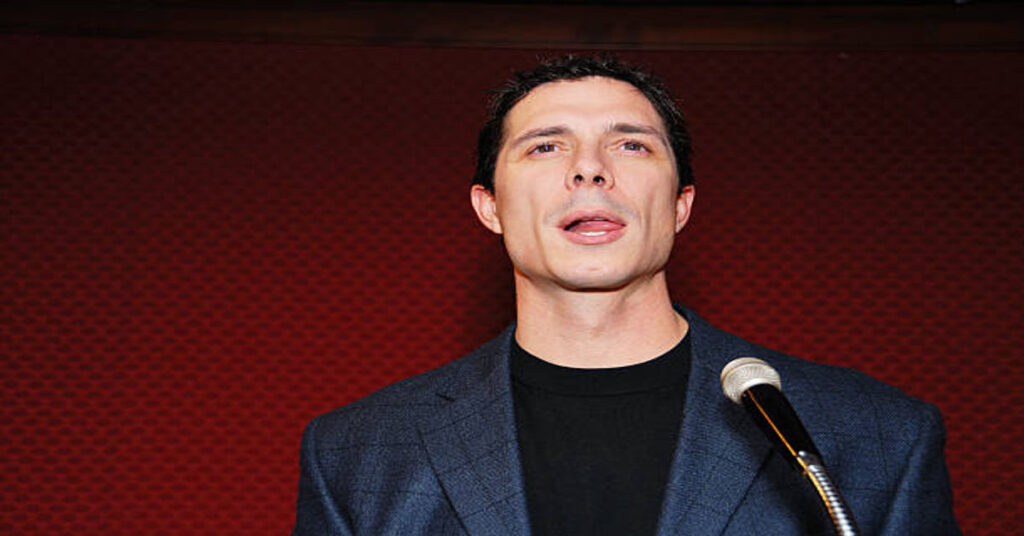Grant Frerking is a figure whose trajectory spans collegiate athletics, entrepreneurship, NIL (Name, Image and Likeness) advocacy and more recently, legal and reputational challenges. This article aims to provide an in-depth, clear and structured overview of his background, achievements, roles, business ventures, and controversies. While drawing on publicly reported facts, the writing remains in my own words, presenting a narrative that highlights both the promise and complexity of Frerking’s story. By the end you will have a thorough picture of who he is, what he has done, where things stand now, and lessons we can draw from his path.
Early Life and Athletic Background
Grant Thomas Frerking was born on April 28, 1999, and hails from the Atlanta, Georgia area. University of Tennessee Athletics+1 He attended the Wesleyan School in Peachtree Corners (a suburb of Atlanta) where—for his high school years—he played football, basketball and participated in track and field (notably the triple jump). University of Tennessee Athletics In his senior year of high school football, he caught 64 passes for 678 yards and nine touchdowns. University of Tennessee Athletics His athletic performance was recognized with second-team All-Region honors. University of Tennessee Athletics
In addition to athletics, Frerking’s academic and leadership foundations were evident. He was named Gwinnett County Scholar Athlete of the Year as a senior in high school. University of Tennessee Athletics From this early stage, his identity combined athleticism, academic ambition and entrepreneurial bent (as we’ll see later).
Collegiate Career: Walk-On at Tennessee
Frerking enrolled at the University of Tennessee and joined the Tennessee Volunteers football program as a walk-on wide receiver starting in 2017. University of Tennessee Athletics+1 For many athletes, walk-on status means battling for opportunity, not guaranteed playing time. Frerking’s journey reflected perseverance.
Timeline and Highlights
| Year | Status | Notes |
|---|---|---|
| 2017 (Freshman) | Walk-on, redshirted | No game appearance. University of Tennessee Athletics |
| 2018 (RS-Freshman) | Active roster, but no game action | University of Tennessee Athletics |
| 2019 (RS-Sophomore) | Appeared in two games (Chattanooga, UAB) | University of Tennessee Athletics |
| 2020 (RS-Junior) | Played in one game (at Vanderbilt) | University of Tennessee Athletics |
| 2021 (RS-Senior) | Appeared in six games; first career catch (5 yards vs Bowling Green) | University of Tennessee Athletics |
| 2022 (RS-Senior) | Appeared in four games; one reception for 4 yards vs UT Martin | University of Tennessee Athletics |
While his on-field statistics were modest (only three career catches for 12 yards according to ESPN) ESPN.com, Frerking’s value to the program extended beyond the stat sheet. He served on the team’s leadership council, was deeply involved in team culture, and completed his undergraduate degree in Supply Chain Management in May 2021. University of Tennessee Athletics+1 He was also pursuing a master’s in Human Resources Management. University of Tennessee Athletics
Key Observations
- Frerking’s decision to walk on reflects a strong internal motivation and willingness to earn his place.
- His focus on academics simultaneously with athletics indicates a broader view of life beyond just playing.
- His involvement in leadership and off-field activities positioned him for roles beyond being a player.
Entrepreneurial Ventures and NIL Involvement
One of the most compelling aspects of Grant Frerking’s narrative is his entrepreneurial side—particularly his early involvement in business and his later role in the NIL space.
Metro Straw and Business Beginnings
While still in high school or early college, Frerking founded Metro Straw, a pine-straw and mulch installation company. According to his bio at Tennessee, it claimed branches in Atlanta, Nashville, Birmingham and Charlotte, and billed itself as one of the largest ground cover solutions providers in the Southeast. University of Tennessee Athletics+1 He also founded another venture, GTF Enterprises, aimed at “changing the landscape of college athletics through NIL opportunities—including endorsements, engagements, appearances and partnerships.” University of Tennessee Athletics
These ventures showcased several traits: Frerking’s entrepreneurial ambition, his sense of initiative while still a student-athlete, his willingness to leverage his networks, and his desire to engage with emerging opportunities (in this case, the evolving NIL landscape).
Role in the NIL Era
With the advent of NCAA changes allowing student-athletes to monetize their name, image and likeness (NIL), Frerking positioned himself in that ecosystem. He served as President of NIL University (also called NIL U), a branch of the sports-media and analytics firm On3 Sports, which aimed to provide resources, education and strategy for NCAA student-athletes, their representatives, collectives and colleges. University of Tennessee Athletics+1 He also held the title Director of Athlete Network Development at On3. University of Tennessee Athletics
In that capacity, Frerking became recognized as a rising figure in the NIL space — even named one of the Top 25 Most Influential Figures in NIL by On3. University of Tennessee Athletics
Why This Matters
- The intersection of being a former athlete, an entrepreneur and an NIL strategist positioned Frerking uniquely.
- His experience as a walk-on athlete lent credibility in relating to other student-athletes navigating brand-building.
- His academic background in supply-chain management and human resources suggested he could understand business operations, not just the promotional side.
- For institutions and student-athletes, someone like Frerking represented a bridge between athletic identity and commercial opportunity.
Consulting with Tennessee and Institutional Relationship
Another important dimension of Frerking’s story involves his consulting role with the University of Tennessee’s football program. In July 2023, he entered into a contract with Tennessee’s athletics department (in particular, the football program under then-head coach Josh Heupel) as a part-time consultant. Saturday Down South+1
Contract Scope
According to reporting:
- He was paid approximately $7,500 every six months over a two-year span (total around $30,000) for consulting services. Front Office Sports
- Responsibilities included advising coaching staff on off-field matters, speaking on panels/events, guiding communication efforts with outside partners, publicly representing the program and maintaining a monthly presence on campus. Saturday Down South+1
- Notably, Frerking’s simultaneous employment at On3 (which had its own NIL relationships) and this consulting role raised questions about potential conflicts of interest or overlapping duties. atozsports.com+1
Institutional Value and Risk
From the university’s perspective, engaging someone like Frerking could offer the following benefits:
- Insight into the evolving NIL environment and athlete-brand relationships.
- An alumni figure who had experience in entrepreneurship and athlete development, which could be leveraged for off-field programming.
- A leadership voice and external resource to complement internal staff.
However, such a relationship also carried potential risks:
- Conflicting obligations (between consultancy, media/NIL role and business interests).
- Reputation risk if the consultant faced legal or ethical challenges.
- Oversight concerns: ensuring value delivered matches compensation and that roles are clearly delineated.
In summary: the consulting arrangement with Tennessee added a layer of institutional legitimacy to Frerking’s profile, while also placing him in a spotlight that, as events unfolded, contributed to reputational exposure.
The Unraveling: Allegations and Controversies
While Grant Frerking’s story had many promising threads, starting in 2025 a series of public allegations emerged that significantly complicated his narrative. Below is a detailed look at the controversies, allegations, investigations and institutional responses.
Nature of the Allegations
Reports from outlets such as the Knoxville News Sentinel, FootballScoop, Front Office Sports and others outline multiple complaints and investigations involving Frerking. Key allegations include:
- Accusations that Frerking, while no longer officially connected to Metro Straw, continued to solicit payments from customers under the company’s name, promising pine-straw installations and mulch services but failing to deliver. https://www.atlantanewsfirst.com+2OutKick+2
- Civil cases: According to court records, as recently as early 2025, Frerking had been ordered to vacate two Nashville apartments for unpaid rent, with debts exceeding $16,000 in that jurisdiction alone. thespun.com+1
- Borrowed money from former teammates or other athletes without repaying, per reporting. atozsports.com+1
- Investigations by the Milton Police Department (GA) and Roswell Police Department (GA) into “theft by deception” connected to unpaid services in a neighborhood pine-straw scheme. https://www.atlantanewsfirst.com+1
- Conflict claims: While employed by On3, Frerking reportedly failed to disclose his consulting role with Tennessee to On3, despite explicit instructions not to engage with the school or its associated collective. On3’s founder publicly stated that Frerking misled the company about his engagement with the Tennessee athletics program. footballscoop.com
Institutional Response
- On3, the sports-media company, publicly acknowledged the allegations on social media: “On3 is aware of allegations concerning a former employee… Our employment ended on May 27 2025. We have a zero tolerance policy for blatant violations of internal standards and values. An internal investigation is ongoing.” Front Office Sports+1
- The University of Tennessee stated that Frerking’s consulting agreement would not be renewed and that the school had no further obligations. A spokesperson claimed the school was unaware of the complaints prior to the reporting. Front Office Sports+1
- Local law enforcement in Georgia opened investigations into Frerking’s business practices relating to his pine-straw company, and neighborhood residents reported a number of similar complaints. https://www.atlantanewsfirst.com
Timeline of Key Events
| Date/Period | Event |
|---|---|
| June – July 2023 | Frerking begins consulting role with Tennessee football program. Saturday Down South |
| 2023 – Early 2025 | Civil claims and eviction orders appear in court records (Nashville area). thespun.com+1 |
| May 27 2025 | Frerking’s employment with On3 ends. Front Office Sports+1 |
| June 2025 | Media reports reveal allegations of financial misconduct and institutional conflicts. atozsports.com |
| June 2025 onward | Georgia local police investigate pine-straw service complaints. https://www.atlantanewsfirst.com |
Implications and Questions Raised
- Reputation risk: Frerking’s earlier profile as a success story—athlete, entrepreneur, NIL leader—was sharply altered by these allegations. The disconnect between public persona and private allegations has strong reputational consequences.
- NIL and ethics: Frerking’s role in the NIL industry illustrates broader challenges: when former athletes become agents, consultants or entrepreneurs tied to student-athletes and institutions, the potential for conflicts, misunderstandings and misconduct increases.
- Institutional oversight: The fact that Frerking held roles with both a media/NIL company and a university athletic department raised red flags. How institutions monitor consultants, verify their backgrounds and manage relationships becomes crucial.
- Legal accountability: While some allegations remain investigations rather than criminal charges, the presence of multiple civil suits, eviction orders and police inquiries means the narrative is still evolving.
- Athlete trust: For student-athletes who may have engaged with Frerking’s NIL-related ventures, the unfolding issues may erode trust in similar support structures and highlight the importance of due diligence.
Assessing Achievements vs. Controversies
It is easy to view Grant Frerking’s story as one of downfall, but to do so ignores the multifaceted nature of his journey. A balanced assessment recognizes both the achievements and the missteps.
Achievements
- As a walk-on athlete at a major SEC program, Frerking demonstrated persistence and commitment – traits many aspiring athletes admire.
- His academic progression (completing undergrad and engaging in graduate studies) indicates he valued education alongside athletics.
- Entrepreneurially, founding a business (Metro Straw) while still in high school/college shows initiative, risk-taking and ambition.
- His pioneering role in the NIL space – via On3, NIL University and his involvement in athlete network development – positioned him as an early actor in a rapidly evolving domain.
- His consulting role with a major football program gave him unique exposure to institutional athletics management, player development off the field and brand strategy.
Controversies / Failures
- The core allegation—that he took payment for services under a company he was no longer affiliated with and did not deliver those services—raises serious concerns about business ethics and accountability.
- The accumulation of rental debt, multiple eviction proceedings and the borrowing from peers all point to financial mismanagement or problematic personal conduct.
- The failure to appropriately disclose or manage overlapping roles (On3 + Tennessee consulting) suggests weaknesses in transparency and institutional compliance.
- The blowback to institutional players (Tennessee athletics, On3) means that his individual story has broader ramifications—not just personal, but structural.
- The erosion of the “success story” narrative complicates his ability to be a role model for athletes, entrepreneurs or NIL professionals.
Lessons Learned
From this dichotomy we can extract key lessons:
- Entrepreneurial ambition must be matched with operational integrity – Starting a business is one thing; fulfilling customer expectations and managing finances is another.
- Multiple hats increase complexity and risk – Being an athlete, entrepreneur, consultant and NIL strategist simultaneously means overlapping roles and responsibilities; each must be transparent and clearly managed.
- Institutional relationships require clear boundaries and disclosures – When working with a university sports program and a media/NIL company, one must guard against conflicts of interest, implicit endorsements and regulatory risk.
- Reputation is fragile – The shift from celebrated figure to alleged misconduct underscores how quickly public perception can change.
- Support systems for student-athletes/entrepreneurs must emphasise education, ethics and compliance – The NIL era opens opportunities, but also exposes gaps in knowledge, due diligence and accountability.
Where Things Stand Now & What’s Next
As of the most recent reports (mid-2025), a few key points represent the current state of the story:
- Grant Frerking is no longer employed by On3; the company announced his termination and internal investigation. Front Office Sports+1
- The University of Tennessee has stated that his consulting agreement will not be renewed and that the school was not previously aware of all the allegations. Front Office Sports+1
- Investigations by local Georgia law enforcement (Roswell/Milton) into alleged pine-straw/mulch service scams are ongoing. https://www.atlantanewsfirst.com
- The full legal resolution (criminal charges, civil settlements) remains pending; much of the story is still developing in public records.
- The NIL ecosystem is watching this story as a cautionary example, and institutions may revisit how they vet consultants, partners and athlete-support service providers.
Possible Future Outcomes
- If criminal charges are brought, Frerking could face legal consequences, impacting his business and consulting prospects.
- Civil litigation or settlements could require him to pay restitution to customers, landlords or others who claim losses.
- His reputation in the NIL consulting/entrepreneurial field may be significantly damaged—leading to a hiatus or shift in career direction.
- Conversely, if he responds constructively—through public accountability, restitution, and transparency—he might regain some credibility, though rebuilding will be difficult.
- For institutions, this case may lead to tighter policies: independent audits of consultants, clearer disclosures from employees about external activities, and enhanced training for student-athletes in financial literacy and business risk.
Implications for the NIL & Collegiate Athletics Landscape
Grant Frerking’s arc intersects several broader themes in collegiate athletics and the NIL era. Below I explore those implications:
NIL Commercialisation and Athlete-Entrepreneur Role
- The rise of NIL gave student-athletes new opportunities to monetise their brand, but also increased the number of consultants, service providers, collectives and intermediaries.
- Frerking’s transition from athlete to business owner to NIL consultant shows one pathway for former athletes—leveraging athletic identity into business and consulting roles.
- However, that pathway is relatively new and lightly regulated: the oversight structures (for consultancies, external monetisation services, athlete support) are still evolving, which increases risk.
- This case underscores the importance of “business literacy” for athletes and alumni—understanding contracts, customer service, legal obligations, and ethics.
Institutional Risk Management
- Colleges and universities engaging consultants, NIL firms and former athletes must maintain clear contracting, disclosures and monitoring mechanisms.
- Conflicts of interest (e.g., when a consultant also holds NIL interests) can create compliance and reputational risk.
- Athletic departments may increasingly require more rigorous vetting of outside vendors, consultants and alumni-entrepreneurs who are engaging with student-athletes or facilitating NIL deals.
- This case might serve as a precedent for policy adjustments: more transparency, stricter oversight, perhaps standardised due-diligence checklists for partners.
Athlete Protection and Education
- Student-athletes navigating the NIL space need education not just on monetisation potential, but on pitfalls: unscrupulous service providers, mismanaged finances, unrealistic promises.
- The Frerking story can be used as a case study: “Beware of early payments, ensure deliverables, understand your contracts and your service providers, check reputation, and maintain business documentation.”
- Universities and athlete support services may build modules around “entrepreneurship ethics”, “financial responsibility in NIL”, and “avoiding payment-for-services risk”.
Media and Public Perception
- Media plays a key role in shaping how figures like Frerking are portrayed—first as a rising athlete-entrepreneur, then as alleged misconduct case.
- The speed of news and social media means reputation can be altered very quickly. One misstep or allegation can dominate narrative, regardless of earlier accomplishments.
- Institutions associated with such figures (On3, Tennessee) face “guilt by association” risk, even if they claim limited oversight or knowledge. As such, reputation management becomes critical.
Summary of Key Facts
Below is a consolidated summary of the most important factual elements:
- Name: Grant Thomas Frerking; born April 28, 1999; hometown Atlanta, Georgia. University of Tennessee Athletics
- High School: Wesleyan School, Peachtree Corners, GA; senior year: 64 catches, 678 yards, 9 TDs. University of Tennessee Athletics
- University: University of Tennessee; walk-on wide receiver for the Volunteers 2017-2022. University of Tennessee Athletics
- Education: Bachelor’s in Supply Chain Management (May 2021); pursuing Master’s in Management & Human Resources. University of Tennessee Athletics
- Athletic stats: Three career catches for 12 yards (per ESPN) and zero touchdowns. ESPN.com
- Entrepreneurship: Founder/CEO of Metro Straw (pine-straw/mulch company) and founder of GTF Enterprises. University of Tennessee Athletics
- NIL / Consulting Roles: President of NIL University (On3); Director of Athlete Network Development (On3). Consultant for University of Tennessee football program (paid ~$30,000 over two years) from July 2023. Front Office Sports
- Allegations & Investigations: Civil suits (eviction/unpaid rent ~$16K+), police investigations in Georgia into pine-straw business, allegations of customer payment without service, borrowing from former teammates, conflicting disclosures between On3 & Tennessee. thespun.com+1
- Institutional Responses: On3 terminated employment May 27 2025 and initiated investigation; University of Tennessee refused to renew consulting contract. Saturday Down South
FAQs
1. Who is Grant Frerking and what is his background?
Grant Frerking is a former college football walk-on wide receiver at the University of Tennessee (2017-22), an entrepreneur who founded a mulch/pine-straw company (Metro Straw), and later served in roles related to Name, Image and Likeness (NIL) with On3 Sports and as a consultant to the Tennessee football program.
2. What were his major entrepreneurial ventures?
He founded Metro Straw, a ground-cover solutions company with purported regional outreach. He also established GTF Enterprises to engage in NIL opportunities for athletes and institutions.
3. What controversies has he faced?
He has been alleged to have accepted payments for services (pine-straw/mulch) via Metro Straw or under his name but failed to deliver, faced multiple eviction orders for unpaid rent in Nashville, borrowed money from former teammates without repaying, and had overlapping roles that raised conflict-of-interest concerns. Investigations are ongoing in Georgia.
4. How did the University of Tennessee and On3 respond?
On3 publicly acknowledged the allegations, terminated Frerking’s employment effective May 27 2025, and stated it was investigating the matter. The University of Tennessee stated it would not renew his consulting contract and indicated it was unaware of the complaints prior to media reporting.
5. What broader lessons can be drawn from his story?
His story underscores the promise and risks of the NIL era and athlete entrepreneurship: one can transition from athlete to business/consulting, but must manage accountability, transparency, ethics and institutional oversight. It also highlights the importance for institutions to vet external partners and for athletes to understand business fundamentals and the potential for reputation-risk.
Conclusion
Grant Frerking’s journey is a multifaceted one: from high-school three-sport athlete to collegiate walk-on, from entrepreneur to NIL consultant, from promise to public controversy. His story illustrates both the opportunities of modern collegiate athletics (including entrepreneurial possibilities and NIL-driven roles) and the hazards that accompany them (financial missteps, ethical lapses, overlapping roles and reputational exposure).
For student-athletes, institutions, entrepreneurs and consultants, Frerking’s path offers a cautionary tale and a learning opportunity. It shows that ambition and branding are not enough without operational integrity, transparency, accountability and sound financial practices. It shows that the fast-moving world of NIL and athlete business ventures is still evolving and demands rigorous frameworks.
As the ongoing investigations and institutional responses unfold, the full ramifications of the case will become clearer. But even now, the lessons are evident. For those working at the intersection of sport, business and personal brand—and especially for former athletes seeking to transition into business or consulting—the need to protect reputation, honour commitments and align incentives has never been greater.
In the end, Grant Frerking’s story is compelling not only because of his rise and fall, but because it encapsulates a transformational moment in college athletics: when student-athletes, entrepreneurship and brand monetisation collided—and the structures around them were still being built. Whether Frerking rebounds, rebuilds his brand or fades from prominence remains to be seen. What is clear is that his narrative will be studied by many in the years to come as part of the broader evolution of athlete business engagement and institutional risk management.







